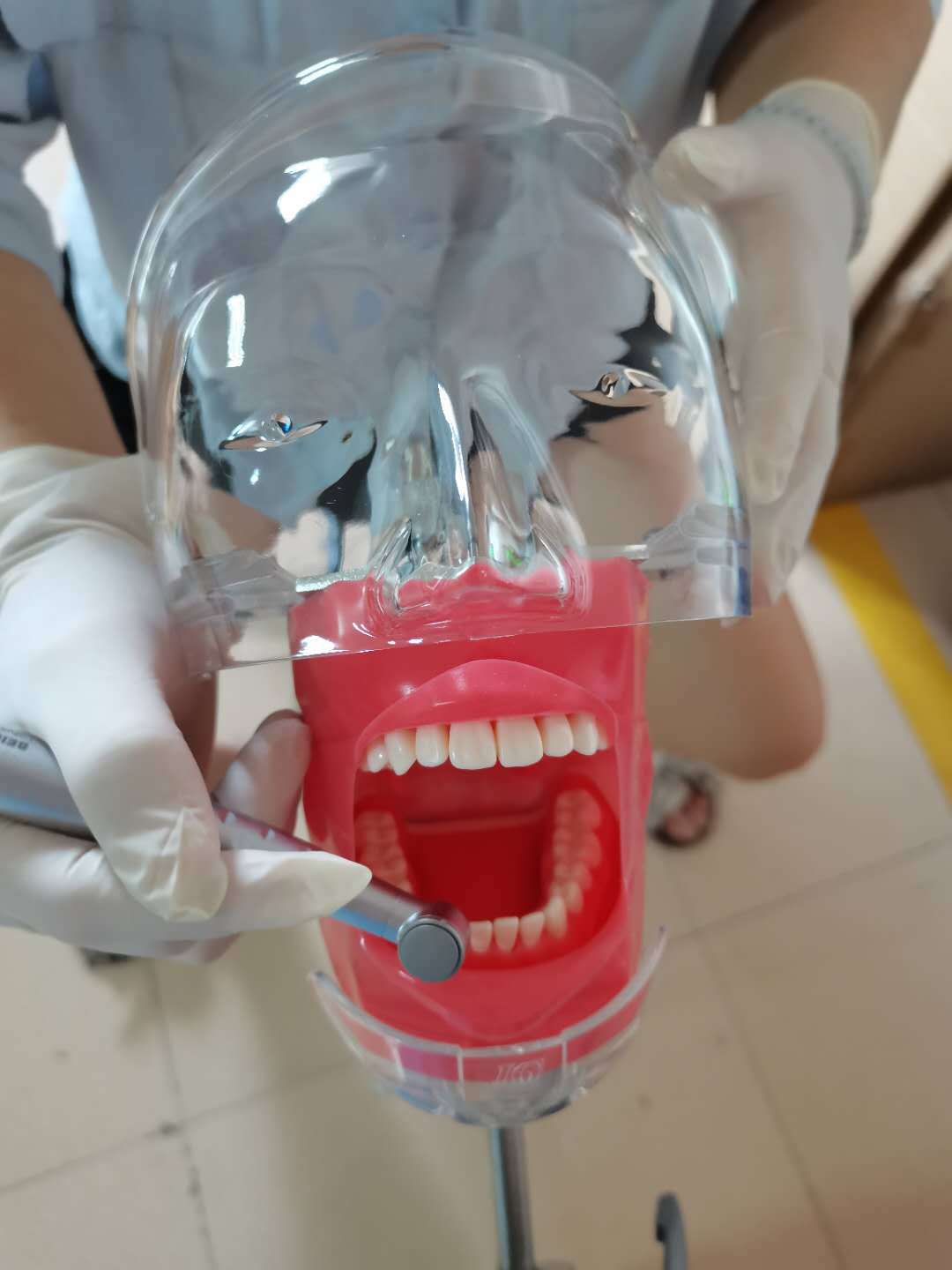Teeth Whitening vs. Veneers: Which One Is The Best?
A bright, white smile can boost confidence, but not everyone is born with perfect teeth. After trying multiple whitening toothpastes, strips, and DIY remedies with little success, many people start considering professional whitening or veneers. But which one is the better choice?
Both alternatives assure a whiter smile, but they work in completely different ways. Whitening lifts stains from the surface of the natural teeth, while veneers cover the tooth entirely, creating a perfectly blank, uniform look. The right pick bet on your tooth, budget, and long-term figure goals.
Why More People Want Whiter Teeth in 2025
- Social Media and High-Definition Cameras make people more aware of their smiles.
- Job consultation, initiative belief, and dating culture put a big stress on vivid teeth.
- More people witness celebrities and influencers with perfect teeth and want the same.
- Tooth stains occur naturally with old age, coffee, wine, and certain foods.
Common Reasons for Tooth Discoloration
Not all greases are the same, and the character of discoloration affects whether whitening or veneers are better:
- Surface Stains – Caused by coffee, tea, red wine, and smoking. Whitening treatment works well.
- Deep Stains – Caused by genetics, aging, or medicinal drugs. Whitening may not help; veneers may be the better option.
- Enamel Erosion – Teeth look yellow because the inner dentin shows through. Veneers are a long-term fix.
How Professional Teeth Whitening Works
Teeth whitening is one of the fastest and most cost-effective ways to brighten a smile. Unlike at-home remedies, professional whitening treatments use high-strength bleaching agents to remove deep stains and lighten teeth by several shades in just one visit.
In-Office Whitening vs. At-Home Whitening Kits
There are two main means to whiten teeth professionally:
1. In-Office Whitening (Laser or LED Treatments)
- Expend a highly concentrated whitening gel applied by a dentist.
- Often combined with LIGHT-EMITTING DIODE (LED) or laser activation for faster results.
- Can lighten teeth by 6–8 shades in a single visit (usually within an hour).
2. Custom At-Home Whitening Kits from Dentists
- A custom tray filled with a lower-strength whitening gel is worn daily for 1–2 weeks.
- Results are more gradual but long-lasting compared to over-the-counter kits.
3. How Long Whitening Results Last
- Professional whitening lasts 6 months to 3 years, depending on lifestyle habits.
- Drinking coffee, tea, red wine, and soda can cause soil to take back faster.
- Regular touch-ups and good oral hygiene help maintain results longer.
Foods and Drinks That Cause Stains to Return
- Coffee & black tea
- Red wine & sour sodas
- Berries & tomato sauce
- Smoking & tobacco
Teeth whitening is a great option for surface stains, but it doesn’t work for everyone.
Are Over-the-Counter Whitening Products Worth It?
Over-the-Counter (OTC) whiten production are cheaper and more accessible than professional treatments, but do they actually work? The results depend on the product type, ingredients, and how deep the stains are.
Whitening Strips, Gelatin, and Toothpaste: Do They Work?
🔹 Whiten Strips
- Contain low-dose peroxide to lift surface stains.
- Show results in 7–14 days, but effects fade faster than professional whitening.
- Can stimulate tooth sensitivity with prolonged use.
🔹 Whitening Gels & Pens
- Quick repair that whitens temporarily but doesn’t remove deep stains.
- Convenient for on-the-go touch-ups but not long-lasting.
🔹 Whitening Toothpaste & Mouthwash
- Use mild abrasives to remove surface stains only.
- Cannot change the actual shade of teeth, only prevent further staining.
- Good for maintenance after professional whitening.
Risk Of Exposure from Overusing Whitening Products
- Tooth sensitivity – Repeated use can wear down enamel.
- Uneven whitening – OTC products don’t work evenly on all teeth.
- Temporary results – Spots often return within weeks.
Are OTC Whitening Products a Waste of Money?
- Good for pocket-size stains, but don’t match the mogul of professional treatments.
- Not efficacious for cryptic discoloration caused by genetics, medication, or aging.
- It can be useful for maintenance after a professional whitening session.
For long-lasting and dramatic results, veneers may be the better option.
What Are Veneers and How Do They Improve Your Smile?
Unlike whitening, which removes stains, veneering handles the total front control surface of the teeth to create a permanently white, uniform smile. Veneering is a lean, custom-made shells that hide discoloration, chips, gaps, and other imperfections.
How Veneers Cover Stains and Reshape Teeth
- Whiten teeth instantly – No waiting for consequences like white treatments.
- Fix deep stains – Bring on dirt whitening that cannot be removed (medication, aging, genetics).
- Reshape teeth – Fix gaps, uneven sizes, and minor misalignment.
- Go 10-20 years – More undestroyable than whitening, which fades over time.
Porcelain vs. Composite: Which Lasts Longer?
Porcelain Veneers
- Firm, stain-resistant, and lasts 10-20 years.
- More expensive.
- Require minimal tooth shaving for a natural look.
Composite Veneers
- More affordable.
- Less durable, holds out 5-7 years before needing replacement.
- It can stain over time, unlike porcelain.
How Much Tooth Shaving Is Needed for Veneers?
- Traditional veneers require a hit 0. 3mm–0. 7mm of enamel.
- No-prep veneers (Lumineers) require little to no enamel removal.
- Once enamel is shaved, veneers are permanent —you can’t hold up backward to natural teeth.
Veneers offer a long-term root, but they are likewise a bigger investment than whitening.
Maintenance Cost Analysis: Whitening vs. Veneers
Both tooth whitening and veneers can enhance your smile, but their costs change significantly based on materials, seniority, and sustenance. Here’s how they equate in 2025.
Total Price Over Time For Professional Teeth Whitening
Whitening needs maintenance every 6 months to 3 years, meaning you may spend money over a lifetime.
Total Cost Over Time For Veneers
Veneers last 10–20 years with proper tutelage; attain them a one-time investment equates to echo whitening treatments.
Long-Term Cost: Which Option Is a Well Investment?
- Whitening is cheaper upfront but needs regular maintenance.
- Veneering costs more initially but provides a permanent, flawless smile.
- If discoloration is mild, whitening is cost-effective. If the stigma is deep, facing it may be worth the investment.
Cost is just one factor—durability also plays a big role.
Which One Lasts Longer? Whitening or Veneers?
Choosing between veneers and whitening isn’t just about cost—it’s also about how long the results will last. Here’s how they compare in terms of longevity and maintenance.
How Often Do You Need to Re-Whiten Your Teeth?
- In-office whitening lasts 6 months to 3 years, depending on diet and oral hygiene.
- Custom at-home whitening trays require touch-ups every few months.
- OTC whitening products provide temporary results and may need weekly use.
- Frequent whitening can increase tooth sensitivity and weaken enamel over time.
Veneers Lifespan: How Long Before Replacements Are Needed?
- Porcelain veneers last 10–20 years with proper care.
- Composite veneers last 5–7 years before showing signs of wear.
- Veneers resist staining better than natural teeth, eliminating the need for whitening.
Which One Requires Less Upkeep?
- Whitening requires frequent touch-ups, especially for coffee and wine drinkers.
- Veneers are a long-term solution, requiring only regular dental checkups.
- For permanent whiteness, veneers are the better choice.
Longevity is important, but what if you have sensitive teeth?
Best Pick for Sensitive Teeth and Weak Enamel
Not everyone is a skillful nominee for tooth whitening or veneers. If you have sensitive teeth or weakened enamel, the correct option is essential to avoid discomfort and long-term damage.
Is Whitening Safe for Sensitive Teeth?
🔹 Temporary sensitivity – Many people experience mild to severe tooth sensitivity after whitening.
🔹 Stronger bleaching factor = more discomfort – In-office whitening uses powerful hydrogen peroxide, which can cause short-term pain.
🔹 Enamel erosion risk – Overusing whitening products, particularly OTC strips and gels, can weaken enamel over time.
Do Veneers Protect Worn-Down Enamel?
- Veneers breed and protect fallible enamel, abbreviates sensitivity.
- They don’t rely on bleach agents, take a crap them a good choice for citizenry with naturally sensitive teeth.
- No-prep veneers require little to no enamel removal, making them less invasive.
When to Avoid Both Treatments
- If you have severe enamel erosion, neither whitening nor veneers may be suitable.
- People with gum disease or tooth decay should address rudimentary issues before dealing with cosmetic procedures.
- If you grind your teeth (bruxism), veneers may wear down faster unless you employ a night guard.
Making the Right Choice for Your Smile
Both teeth whitening and facing can improve your smile, but the best option depends on your dental needs, budget, and long-term goals.
Best Option for Minor Stains vs. Deep Discoloration
- Choose to whiten if you own mild control surface stains from coffee, tea, wine-colored, or smoking.
- Pick out veneers if your teeth have cryptic stains from genetics, aging, or medications.
Which Treatment is Better for Chipped or Uneven Teeth?
- White only changes tooth color, but it won’t localize scrap, disruption, or irregular shapes.
- Veneering cuts through imperfections to give you a whiter and more even smile.
What Dentists Recommend Establishing Your Dental Condition
- If you desire a fast, affordable solution, → Whitening is best.
- If you require prospicient-term, brand-tolerant results, → Veneers are better.
- If you have erosion of enamel or sensitivity, → Facing is more secure than double whitening.
Final Thoughts
If your end is a brighter smile for a special event, whitening is a fast and cost-effective option. But if you want a permanent Hollywood smile that jib smirks and lasts for years, veneering is worth the investment.




